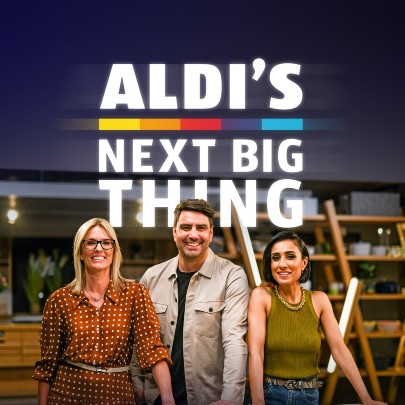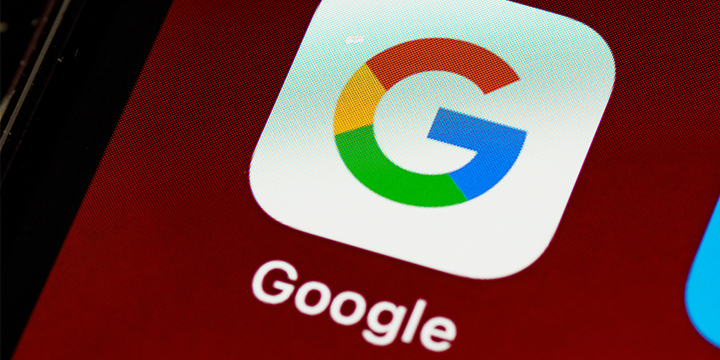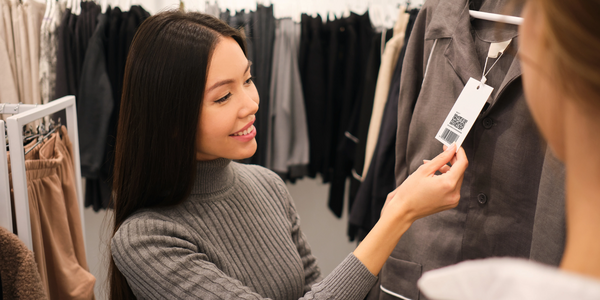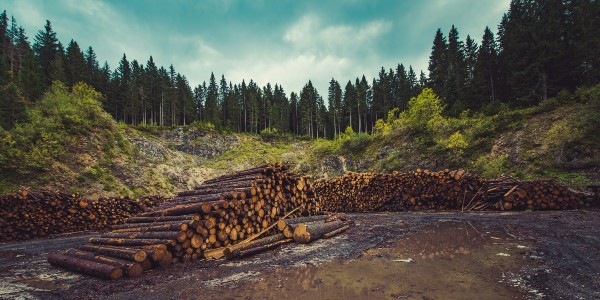August 16, 2024
Launched in 2022, Aldi’s next big thing gives small-scale British food and drink producers the rare opportunity to pitch their products to Britain's fourth biggest supermarket. The prize is a life-changing contract to supply Aldi's stores nationwide. Viewers are taken on a journey behind-the-scenes at the supermarket giant, while the suppliers visit Aldi headquarters to showcase their products. Each episode sees the panel deliberate on multiple factors as they whittle six products down to two.
The finalists then have four weeks to improve their products before learning who has won. The show not only presents valuable pitching opportunities and helps brands get retail ready, it offers incredible exposure and the benefits can be far reaching.
To find out more, we heard from four founders who had been featured on the show, including:
Jess Mackenzie, founder of Jess Cooks, the home of delicious, healthy kids and family meals ready in an instant, fresh from the freezer.
Rob Brice, founder of Crave, a free-from snack brand that is known for its fun take on popular UK snacks, including vegan versions of household names like Monster Munch and Frazzles.
Mike Williams, founder of Flake Bake, a Jamaican patty manufacturer and distributor based in Southeast London and one of the latest season’s winners. Read on for a summary of their key learnings and experiences.
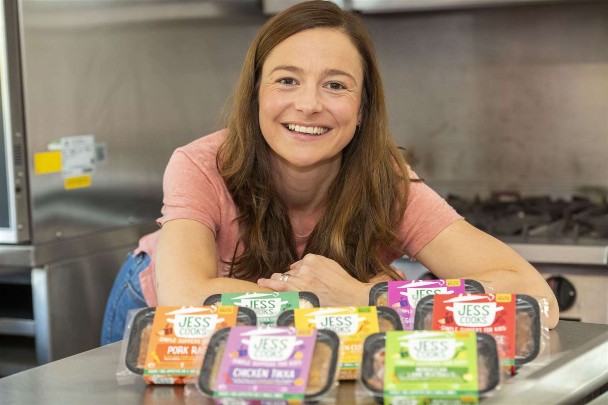
Jess Mackenzie, founder of Jess Cooks
What is it like when you don’t win?
Jess: “I didn’t expect to win. I went with my eyes open. For me it was very much an opportunity to get my brand out there. I had also worked in TV for ten years before launching my brand, which gave a different perspective on the whole process, from casting the contestants to choosing the winners and – most importantly – who gets the most airtime. That is probably the only thing I was disappointed about. I got very little so that is something to consider. You will spend a lot of time preparing and you might get emotionally investing thinking it is going to be your big break. There was a lot of filming time that was condensed down into two minutes of airtime with very little info on my product and brand. So be aware that if you don’t end up winning, the airtime you get will be minimal, so you need to consider whether you want to invest the time.”
Take us through the process and why you got picked
Rob: “I saw the ad in Grocer so gave it a shot. I didn’t really think we would get through, but we did already have third-party manufacturing, so things were starting to ramp up. From the outset it was very clear this was a TV show first and foremost. The video calls and interviews felt more like an audition process. They seemed more interested in me than my actual brand or products."
Jess: “I don’t think Aldi actually have that much input in the actual audition process. I think that is almost entirely the production company and crew. It is once you get through that Aldi come on board to look at your products and brands.”
Mike: “I found out about the show through a message from a friend. I applied and got on. You do have to go through multiple interviews and send products around the country for people to try, but it was all fairly straightforward.”
Did you have any concerns about appearing on the show?
Mike: “I viewed it as an opportunity. I went in with a game plan so knew what I wanted to get out of it. I knew it would be great exposure for my brand and, even if I didn’t win, it could drive interest from other retailers or manufacturers. So my mission was simple. Showcase our products, raise awareness of our brand and tell our story.”
Rob: “You really can’t buy that sort of PR. You get in front of Aldi, two, it is likely other retailers will see it, and you are going to be on prime-time TV. It offers incredible exposure for startup businesses.”
Jess: “The most valuable part for me was the getting feedback directly from Aldi’s Managing director of buying. She was very honest and told me that while she loved the product, it just wasn’t going to sell in the kind of volumes Aldi needs. That is something you need to bear in mind. Aldi is all about volume. Their business model is to offer a smaller range than the other supermarkets that sell in higher volumes. That is how they keep their prices low. So I didn’t really go in expecting to get through. It was great to meet this incredibly influential buyer and get their thoughts. I would do it again if I could.”
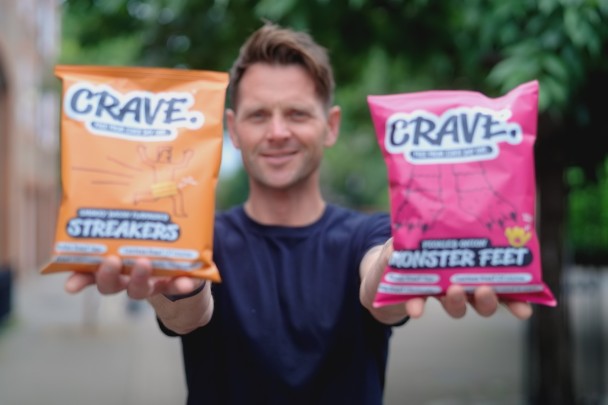
Rob Brice, founder of Crave
Did you have to compromise on your product to get it to the next stage?
Rob: “We were already set up for mass manufacture so were ready to deliver high volumes of our product. If you have a product that sells for £12, there are going to be some significant changes required to get onto Aldi’s shelves. Aldi need to maximise their margins, so they are going to cost engineer your product heavily.”
Mike: “We were hand made so we knew going in that our production methods weren’t going to work for Aldi. If you are lucky enough to win, Aldi will connect you with a co-packer and that was when I really started to understand how much engineering goes into getting a product store ready. What we ended up with was pretty close to the original, but we were never going to get the same results and level of quality.
"Any product that goes into mass product will never quite match the product made in the kitchen.
“Costings then become more important as you have a manufacturer, distributor and packaging supplier to pay. Our pricing was actually ok. It was the shelf life that was the problem. Our hand made patties only had a shelf life of five days. When we got to the final, we were told we would not get listed without a ten-day shelf life. We worked with a food scientist and luckily the changes we had to make were minimal.
“After the show itself there were a lot more things we needed to remove such as allergens. This did skew the taste a little we still felt we had a product that was good enough to challenge what was already out there.”
What has happened since?
Rob: “I have kept in touch the with the Aldi buyer and she has been a great help. We got legal action from two huge corporations last year and they have really helped us deal with it. It has been great as an awareness platform and did get us noticed buy other retailers."
Mike: “we have gone from a brand that few knew to one that is known nationally. Off that back off this increased awareness, we launched an online shop to meet the new demand we were seeing and that is still going strong. Our product actually became to show’s fastest selling which led to another special buy of 100,000 patties. 80 per cent of which sold within seven days.
"This gave us the leverage to pushing Aldi for a long-term contract. It has given us great publicity so, if you ever have the opportunity to appear on a tv show, do it as you never know where it could take you. It has probably been the best business decisions we have ever made.”
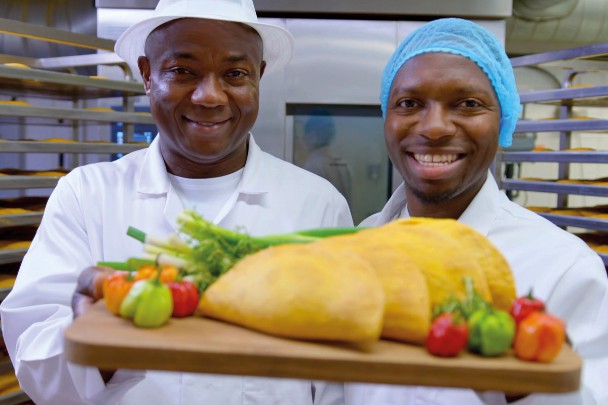
Mike Williams, founder of Flake Bake (right) with his dad Paul
What advice would you give Tt any other brands considering working with Aldi?
Rob: “Margins in food are super tough and Aldi want to be cheaper than everyone else. You can’t determine their retail price. If they want to lose margin they will lose margin. We as the brand will still make ours, however, other retailers will see that price, and this will impact how they view your product. This caught us out a bit and we have had to adapt. Going forward, we now engineer products specifically for Aldi that will not be seen in any other retailers.”
Mike: “Like Rob said, you can’t determine the RPP so you need to think of ways to manoeuvre yourself, so you don’t get stuck being viewed as a cheap Aldi product. This could be a simple has having different packaging variations. And do think carefully about your packaging. In the finals we actually had to design some as part of the selection process.
"With our original designs, you couldn’t actually see the product inside. Aldi, told us that people this needed fixing as we were largely unknow. Shoppers needed to see what was inside and we needed to have large, clear text explaining what the product was”.
